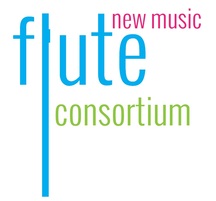Get to Know...Martin Rokeach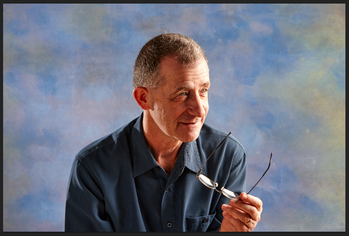 In addition to the opportunity to reacquaint myself with the piece they were honored for (in this case Going Up? for flute, viola, and cello), my favorite aspect of writing these features is learning a bit more about the composers. I often find a surprising or fascinating fact, an interesting parallel to other composers, a new piece I love, or a connection to someone I know or an FNMC member. While preparing Martin Rokeach’s composer spotlight, I found all of these! Perhaps of greatest interest to our members, many of whom love the piccolo as much as I do, Martin composed a wonderful piccolo concerto, available both in the original version for piccolo and orchestra and a very effective 2018 transcription for piccolo and piano. FNMC commissioning member Amy Likar has been a huge supporter of this concerto, she presented the world premiere performance with the Oakland Symphony Orchestra and has subsequently performed the orchestral version several times most recently with the University of Southern California Concerto Orchestra. She has also performed the version with piano reduction multiple times including at the NFA Convention. If Amy’s support and my enthusiastic endorsement haven’t inspired you to listen, perhaps this review from the premiere might. In it, The San Francisco Chronicle wrote of Rokeach’s writing for the piccolo: “this is unmistakably a work written with its specific circumstances in mind. Rokeach revels in the particular sonorities of the piccolo — particularly its sweet-toned, rather vulnerable low register, which is worlds away from the piercing shrillness with which it usually blasts its way through an orchestral texture. And he lavishes the solo part with care and solicitude. He just doesn’t ask the piccolo to dance like a clown for your amusement. It’s a perfect balance to strike.” I suspect that when many of our piccolo loving members listen to the concerto they will be programming it as well! If you’re looking for a less substantial work in terms of time, but one that is in no way less substantial musically, check out his incredible Nocturne for piccolo and piano, written for the wonderful Eldred Spell. I’m listening to it as I write and thinking I must program it soon! I love the use of the low register (something Eldred demanded…read the cute story of its origin below) and the dark mood! I was interested to find that Martin is a guitarist who began his journey in music playing popular music. He is at least the fourth composer honored in our competition to take that course. Martin’s work for flute, viola, and cello, Going Up? was chosen by FNMC members as a finalist in the chamber music category in 2018. It’s a charming and energetic work that our members will certainly want to explore. Martin has graciously provided us with detailed program notes for each of his solo and chamber works for flute below. All of the music mentioned in this spotlight can be heard on Martin’s website (www.martinrokeach.com) or Youtube and we've linked directly to the pieces throughout the spotlight. Q&A with Martin… Who is/are your favorite “new music” composer/s and why? Some of my favorite living composers are, in no particular order: Julia Wolfe, Jennifer Higdon, David Lang, Frank LaRocca, Jesse Montgomery, John Adams, Robert Greenberg, Osvaldo Golijov. Their music is unique and reflects their individuality, but something they all share is compelling musical ideas with powerful expressive substance married to exquisite craft. Describe your musical background and current activities. Like most guitarists I started out as a folk-picking and pop-music player and came late to classical music. I adore music of almost all stripes and styles -- classical, jazz, blues, rock, North Indian raga, Persian classical, mariachi and so much more. My guitar duo will soon be performed in New York and Brazil, and my clarinet music will be played this November in Colorado and California. Probably of more interest to your readers, this fall Christie Beard will play my piccolo nocturne in Nebraska and in 2020 the European premiere of Going Up? will take place in Denmark. Do you have any upcoming events that you would like our friends and followers to know about? Piccoloist Amy Likar is currently playing my piccolo concerto (the piano reduction version) on her tour of the southern U.S. and will perform the orchestral version again in March 2019 with the University of Southern California Concerto Orchestra. What advice can you give to flutists about approaching new music in practice? Put the same effort and understanding into your music that a fine actor does while preparing a character. Just as composers shouldn't be shy about seeking advice from players, performers should feel free to ask composers for feedback and coaching. More About Martin… The music of composer Martin Rokeach has been performed by the Oakland Symphony, Berkeley Symphony, Master Sinfonia Chamber Orchestra, San Francisco Concerto Orchestra, United States Army Orchestra, Pacific/Mozart Ensemble, Ensemble Variant (Geneva), Chameleon Arts Ensemble (Boston), Dunsmuir Piano Quartet (San Francisco), League of Composers (NY), the Chicago Ensemble, Musica Nova (Macedonia), Duo Sforzando (Geneva), Wyck Trio (U.K.), Vermont Contemporary Music Ensemble, the St. Petersburg (Russia) Chamber Players, the Sheridan Players (Chicago), the Webster Trio (Houston), Guitarinet (Poland), New Dischord (Chattanooga), Tempo (Los Angeles) and many other outstanding ensembles and soloists throughout the United States, Europe, and Australia. His works have earned honors in fourteen national or international composition competitions, most recently those sponsored by the International Horn Society, Audio Inversions of Austin, International Clarinet Association, National Flute Association, and the Chicago Ensemble, and he has been commissioned to write music for the Oakland Symphony, Ellsworth Smith International Trumpet Competition, New York’s Cygnus Ensemble, Switzerland’s Dobrzelewski/Marrs Duo, Left Coast Chamber Ensemble, Music Teachers Association of California, California Association of Professional Music Teachers, New York’s Eight Strings and a Whistle and numerous soloists. His music has been published by Hickman Music Editions, Kagarice Brass Editions, Northeastern Music, Fallen Leaf, Go Fish Percussion Publications, and ALRY and recorded on the Furious Artisans, Albany, MSR Classics, Arizona, Emeritus, North/South, Capstone, and Amie labels. He has been a featured composer and speaker at the Sion Conservatory of Switzerland, Hartt Conservatory of Music, New York University and Wichita State University, and concerts devoted exclusively to his music have been held at Washington State University and Western Carolina University. Mr. Rokeach earned his Ph.D. in music composition and theory from Michigan State University and Bachelor's and Master's degrees from San Francisco State University. A Professor Emeritus at Saint Mary's College of California, for 33 years he was one of the artistic directors of the San Francisco Bay Area's contemporary music concert series, Composers, Inc. Currently he is writing an oratorio on the subject of the Great Flint Sit-Down Strike, to be premiered in 2020-21 by the Oakland Symphony and Chorus. www.martinrokeach.com If you Liked Going Up?... Can’t Wait for flute (or violin), clarinet, piano; 1-movement, 7’ (1999) Program Notes Did you ever feel so excited to do something you didn’t think you could wait, but you had to wait anyway? To my ear, this is the feeling that drives the piece. Concerto for Piccolo and Orchestra [piano reduction]; 3-movements, 19’(2018) Concerto for Piccolo and Orchestra; 3-movements, 19’ (2015) Program Notes For years I have loved the innocent, haunting timbre of the piccolo’s low register. Sounding so much like a boy soprano, the instrument possesses a unique voice that affects and informs the entire direction of the Concerto for Piccolo and Orchestra. Almost every concerto has a dynamic between soloist and orchestra not unlike a leader and a sometimes agreeable, sometimes unruly congregation. To my ear, the piccolo-leader is like a brilliant child, both innocent and profound, encouraging, cajoling and inspiring a congregation of less wise adults. Of course a three-movement work for piccolo and orchestra cannot remain innocent and haunting from first bar to the last. To remain engaging it must display emotional breadth and contrast, and I hope this is revealed throughout the concerto. The first movement opens with a statement, more declamatory than melodic, that is like an urgent proclamation. It traverses through emotional terrain that is sometimes anxious, mysterious, quietly intense, powerful. It is in the second movement, “Still We Hope,” that the beautiful low register of the piccolo more fully unfolds. Its mood conveys our belief, our yearning, however irrational, that somehow a better world awaits us just around the corner. The movement does not quite resolve. Instead it lands on the solo triangle that introduces the finale, whose mood is celebratory, playful, and finally, ecstatic. Going Up? for flute, viola, cello; 1-movement; 7’ (2008) Program Notes Going Up? was commissioned by the New York trio Eight Strings and a Whistle and premiered in 2008. To my ear, the material and energy of the piece continually pulls the listener upward, hence the title. There are three themes, all ascending, introduced in the first moments respectively by the flute as the piece opens, the pizzicato cello in measure 4, and the pizzicato cello again in measure 8. What should the listener make of all this upward momentum? Might there be some kind of emotional or spiritual meaning behind the notes? I don’t know. Nocturne for piccolo and piano; 1 movement 6’15” (1985) Program Notes Written in 1985 for Eldred Spell, my Nocturne explores the very expressive, yet rarely heard low register of the piccolo. It is a succinct work, conveying a mood of tenderness mixed with resignation. A little more background regarding Nocturne In graduate school at Michigan State University I became close friends with the wonderful flutist Eldred Spell. We gave a number of flute/guitar recitals, and I learned much about writing for the instrument. In 1982 I wrote my very challenging Variations for Flute and Piano for Eldred. After performing it numerous times and recording it he said: "You know I've worked like a dog for you and you owe me. I want another piece, one for my piccolo. It has to emphasize the gorgeous low register and be easy enough to sight read." He didn't leave me the option to say no. Sleepless Night for flute, violin, cello, guitar; 1-movement, 6’ (2006) Program Notes To my ear, this one-movement quartet conveys a sense of restrained agitation, an inability to find repose, which reminds me of laying awake in quiet turmoil. Variations for Flute and Piano; 1-movement, 11’ (1982) Program Notes The term “variations” often connotes sterility but, to me, there is no musical form that is more personal. The opening theme, three emotionally charged phrases, ebbs and flows from one variation into the next, often without pause, and sharply differing moods pour forth as a result. The outline is as follows: Theme -- Maestoso Variation 1: Mournful; delicate Var. 2: Cold, with little expression Var. 3: A little faster Var. 4: Angrily Var. 5: Mournful Var. 6: Passionately Var. 7: Giocoso Var. 8: Con spirito Var. 9: Somber Var. 10: Allegro Reiteration of original theme Var. 11: Coda; espressivo During my earlier years as a composer, friends and colleagues sometimes teased me for my apparent lack of imagination regarding the titling of my pieces. Kind listeners, I can only hope that you find the content of the work contains more passion than its title.
0 Comments
Get to Know...Owen Eddy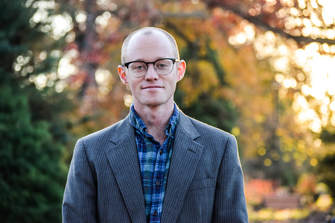 It is so fun to see recurring themes in what we learn from composers as well as to discover each composer’s unique musical perspective. Owen Eddy, like many of our composers was inspired to write for the flute by the open approach flutists have to new music. We’re always so pleased that flutists have such a positive reputation among composers! Owen is a saxophonist, another community of instrumentalists who openly embrace new music! Much like Carter Pann, Owen lives by the motto of writing music he would want to listen to! Owen has really diverse musical interests including folk music and jazz. We found it interesting to listen to some of his compositions with this in mind, there’s a definite diversity in his works that reflects the variety of his musical interests. We think you’ll enjoy listening to his finalist work “Mitchell Park, Charleston” which functions as the first movement in a larger work, titled Just Drop a Pin. Members will remember Owen’s work as After I Leave: The Park for flute, piano, and two percussionists (one playing vibraphone and glockenspiel and the other djembe and wind chimes). If you like "Mitchell Park, Charleston" it has not yet been premiered! Owen is the first military musician we’ve had the pleasure of working with. Owen is stationed at Fort Bragg where he is a staff saxophonist and shop arranger. Q&A with Owen… What about new music for the flute appeals to you? In the beginning it wasn’t so much the flute that appealed to me but the attitude of a flautist I was working with, Kari Boyer (grad student at the Manhattan School of Music). Her willingness not only to play new music but to sit down and discuss the mechanics of the flute piqued my interest in the instrument. Up to that point I was accustomed to people asking me not to ‘prepare’ the inside of their piano or bass clarinetists sweating at the thought of purposeful key clicks. After being introduced into a community of flautists, I found a real willingness to play new music and experiment with modern sounds. The technical and tonal versatility of the flute is something I have always admired, especially as it applies to extended techniques; but in recent months I have been inspired by the alto flutes’ almost primal tone quality. For me, the sound of the alto flute can take the most esoteric composition and lend it a perennial quality. Who are your favorite “new music” composers and why? Nico Muhly, John Luther Adams, Marcos Balter and Bryce Dessner are a few of my favorite composers. Nico Muhly has an uncanny ability to write convincingly in drastically different genres when co-writing with other musicians. I also admire the diverse musical community his compositions have espoused. John Luther Adams’ reverence for sound in the natural world deeply effects me. His work “Strange Birds Passing” has a regenerative purifying effect on me. Some of the most incredible flute compositions I have ever heard have come from the composer Marcos Balter. His work with Claire Chase has inspired me to seek a deeper relationship between my music and the performer. Describe your musical background and current activities. I grew up near Charlotte, NC playing saxophone, guitar, and piano for jazz and indie rock bands. During that time, I listened to a lot of Bob Dylan and Nick Drake who were (and still are) a source of inspiration for my own writing. During my undergraduate degree, I studied the saxophone, and that’s when I fell in love with new music. After graduation, my wife and I took a leap of faith and moved to Nashville TN where I recently finished my Masters in Composition. Toward the end of my degree I started working for the Army as a saxophonist and occasionally as an arranger. I am just beginning to find my own compositional voice outside of academia. When I am not playing a ceremony around Fort Bragg I do a lot of freelance arranging, and I also enjoy making bread and reading science fiction. Do you have a guiding principle or consistent sources of inspiration for your music? Yes, I have one guiding principle for my music, Write the music you want to listen to. This personal axiom often reminds me that I am not married to a genre, style, instrumentation, or even an idea of myself as a composer. Even my own likes and dislikes evolve over time, therefore so does my music. As for sources of inspiration, there are a few that are always with me. The first comes in the form of a quote by A.W. Tozer, “The most important thing about a person is what he thinks about who God is.” This statement often helps me locate within myself the germ of a feeling or idea. Sometimes I am able to bring them to musical fruition. The other is science fiction, namely authors Isaac Asimov and Cixin Liu. These particular inspirations have been impactful because I crave the sense of smallness that God, time, science, and music can give me. Do you have any upcoming events that you would like our friends and followers to know about? I just received an artist grant for 2018 which I am using to release “Just Drop a Pin,” a collection of chamber pieces depicting very precise locations. One of which “Mitchell Park, Charleston” was a finalist for your chamber music competition. I am still in the process of finding an ensemble and a recording studio to work with for this release. However, I will continue to post updates at my website oweneddy.com. Also for the last two years my wife Heather and I have been working on a new music inspired folk album titled “The Young American” which we plan to release in 2018. Updates on that project as well as past compositions and arrangements are also on my website. More About Owen… A native of South Carolina, Owen Eddy holds a BA in Saxophone Performance from Winthrop University and a MM in Music Composition from Belmont University. He currently works as a Saxophonist and Arranger for the United States Army Band stationed at Fort Bragg. Owen grew up playing and writing for jazz and indie rock bands around Charlotte NC. The singer-songwriter folk music genre is still an important source of inspiration for his music. His far-ranging tastes have born a versatility in his technique, leading to success in both arranging and composition. His minimalist jazz-inspired works explore themes of science and existence. With the help of several artist grants Owen has enjoyed working with instrumentalists in the studio as well as on the stage. When Owen isn't bent over the keyboard or jogging around Fort Bragg he enjoys baking bread and reading science fiction. If you liked Mitchell Park, Charleston (After I Leave: The Park)… Asaph Date of Composition: 2015 Instrumentation: flute and piano Duration: 6’24” Nevertheless, She Persisted Date of Composition: 2016 Instrumentation: flute quartet Two Places Date of Composition: 2015 Instrumentation: flute, clarinet, French horn, vibraphone, piano, and bass Catch up With...Cherise Leiter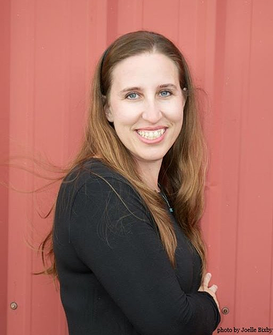 For those who follow our composer spotlights, Cherise Leiter may be a familiar face. She was a finalist in 2014 for her beautiful work for flute/alto flute and cello, Chroma. We loved the timbres she created in that duo and we were pleasantly surprised when it was revealed that she was the winner of this year’s chamber music category for The Life in the Day for flute/alto flute, guitar, and cello. Again, she deftly creates unique and beautiful timbres and beautiful melodies, this time adding the guitar to the ensemble she so skillfully composed for in Chroma. We're pleased to share that Cherise will be meeting with Nicole Riner, our wonderful Membership and Communications chair, in 2018 and we look forward to sharing their conversation, but in the meantime we wanted to give you all an opportunity to catch up with Cherise. We look forward to hearing two works Cherise completed recently, a duo for two flutes entitled Vignettes and a work for flute and fixed electronics, Penitence and Praise. We’re also really pleased to learn that Chroma has been recorded. There are more details about all of these exciting announcements in the Q&A below! Q&A with Cherise… What about new music for the flute appeals to you? One of the things I love about the flute is that despite its ancient and glorious lineage and the tremendous body of literature written for it, we can still discover new sounds, new techniques, and new effects. That is what appeals to me so much when writing for the flute. I play just enough flute to be a danger when writing for it, and I love experimenting with techniques, fingerings, etc. While my chamber piece "The Life in a Day" is in the more traditional vein, I still had fun exploring meter and tone color. I also love the fact that flutists really dig new music and are not the least bit scared of it! That is VERY attractive from a composer's point of perspective. Describe your musical background and current activities. I have a Bachelor’s degree in music theory, and was perfectly content in my Common Practice literature and analysis, until I had to take a class that was intended to introduce theory majors to the art of composing. I entered it kicking and screaming (at least internally), and left it headed to graduate school as a composition major. I have composed a number of pieces for flute in the past few years—primarily in chamber settings—and have enjoyed it very much. I now have a piece for flute and fixed electronics (Penitence and Praise) that was a commission from Colleen White, which pushed me into a new area. I also recently finished a flute duo which was commissioned and premiered by Naomi Seidman and Cristina Ballatori at the most recent NFA conference. Outside of the flute world I am finishing up a piece for wind ensemble (although it does have flutes in it!) and also working on a piece for solo piano—a set of etude variations on the folk song written by the female outlaw, Belle Starr. Do you have any upcoming events that you would like our friends and followers to know about? I am thrilled that “Chroma,” a piece I composed for flute and cello (and that was an FNMC finalist in 2014), has been recorded by the Jano Duo on their recent CD “Dreaming in Color.” They did an AMAZING job with it, and with the pieces of five other composers—all recent pieces! What advice can you give to flutists about approaching new music in practice? Advice to flutist when approaching new music: don't be afraid to play around and try new sounds and timbres, even if they are not what we traditionally think of as 'pretty' sounds. As a composer I love all the colors the flute can produce! More About Cherise… Born in Florida, Cherise Leiter received a B. M. in Music Theory and an M. M. in Composition from the University of Florida where she studied with Dr. Budd Udell. She is currently Professor of Music at Metropolitan State University of Denver, teaching music theory and composition. A composer whose output includes works for choir, piano, voice, band, orchestra and assorted chamber ensembles; her compositions have been performed throughout the United States, Canada, Scotland, France, Italy, Romania, and Japan. She was a featured composer at the New Music Symposium, the University of Central Missouri’s New Music Festival, the Aspen Composer’s Conference, the Women Composers Festival, the Atlantic Center for the Arts, June in Buffalo, and Brush Creek Foundation for the Arts. In her spare time, Ms. Leiter is an avid knitter, hiker, swimmer, cook, and bibliophile. She also has a vested interest in anything made of chocolate. She can be reached at [email protected], or www.cherisedleiter.com. If you liked The Life in a Day… American Folk Suite Instrumentation: flute and soprano Duration: 11’ Chroma Instrumentation: flute/alto flute and cello Duration: 9’ Chromaticity Instrumentation: flute/alto flute, clarinet and bassoon Duration: 9’ Penitence and Praise Instrumentation: flute and fixed electronics Duration: 9’ Prelude and Fugue Instrumentation: flute choir Duration: 7’15” Sacred Harmony Instrumentation: flute choir The Life in a Day Instrumentation: flute, guitar, cello Duration: 18’ Vignettes Instrumentation: flute and alto flute Duration: 6’ Get to Know...JP Merz Many people might look at a score for two piccolos and electronics and say, “No Way!” Not our members, a lot of our members love to play the piccolo and drops on a living surface the winning work in the flute duo category this year is garnering a lot of interest from the membership. Composer JP Merz describes the pieces as one that “imagines the cone of a loudspeaker as a thin barrier between the physical and digital world -- a surface for drops of electricity to come alive. These drops begin quietly, almost bell-like, and accumulate into a majestic, electric rainstorm.” He skillfully exploits all of the ranges and colors the piccolo can produce in a really interesting work for a rare instrumentation. We think you’ll agree, there are two performances available on JP’s website. photo credit-Owen Zhou Q&A with JP… Describe your musical background and current activities. My love of music-making began in southern Wisconsin playing guitar in rock/jazz bands, viola in orchestra, and making strange electronic tracks on my family's computer. I always enjoyed creating in whatever style I was in, but when I was exposed to even more traditions in college, I became overwhelmed by the possibilities. At some point I realized that composition can focus all of my interests into one practice. Much of my work is concert music for classically-trained musicians but I frequently draw on my previous experiences in other traditions and also enjoy collaborating with musicians and artists from different backgrounds. I’ve made string quartets, electro-acoustic works, arrangements for singer-songwriter albums, custom performance software, feed-backing robotic objects, a voice controlled massage chair installation, among other things. Who is/are your favorite “new music” composer/s and why? Too many to list, but my one sentence answer is usually: anyone on New Amsterdam Records for their efforts in democratizing genres and supporting stylistically diverse projects. If I were to name a single, independent composer though, it would be Meredith Monk. Her relentless exploration of the voice and ability to convey emotion and story without words is always inspiring to me. What about new music for the flute appeals to you? Obviously the versatility and huge range of color is amazing to work with. But for me the main appeal is working with flutists themselves, who are always so supportive and excited about new music. That feeling comes from working directly with enthusiastic flutists on a pieces of mine, seeing flute teachers encouraging their students to work with composers or through the awesome efforts of FNMC. What advice can you give to flutists about approaching new music in practice? Don’t be afraid to take risks, try new things and truly interpret the music. In my opinion this is true for all music really, but especially for brand new or rarely performed works. As a composer, it’s a great feeling when the performer is more focused on making the piece their own rather than worrying about playing it “correctly” or even the way I intended. More About JP… JP Merz is a composer who works with classical, jazz, and rock musicians, as well as improvisers, dancers, electrical engineers, internet researchers, programming languages, and robots. His recent work explores intimate, emotion-driven, and kinesthetic experiences of sound. JP’s work has been performed by members of the JACK Quartet, Altius Quartet, Playground Ensemble, Iowa Center for New Music, and Colorado Music Festival Orchestra at places such as the Weill Hall of Carnegie Hall, New Music Gathering, Boulder Museum of Contemporary Art, Madison New Music Festival, San Francisco Fringe Festival, the Abrons Arts Center, record stores, coffee shops and living rooms. In 2016, he received support from the American Composers Forum's JFund for New Music and interned with his favorite new music series, Liquid Music. In addition to composing, JP performs on electric viola, guitar, and electronics with an eclectic variety of groups ranging from new music/improv ensembles to folk-rock bands. This fall he began his DMA in composition at the University of Southern California. http://www.jpmerz.com/ If you like drops on a living surface… an eagle flew Year of Composition: 2015 Instrumentation: soprano, viola, flute, and piano Duration: 5’05” Out, out Year of Composition: 2013 Instrumentation: flute and electronics Duration: 11’24” Learn More About...Paul Richards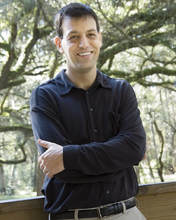 We’re always gratified that composers enter our contest more than once. We hope it is a sign that they have a positive experience. Five composers who were finalists in our inaugural 2014 competition have found success in multiple competitions. Nicole Chamberlain, Joao Pedro Oliveira, and Greg Steinke were all finalists in multiple years. This year, two former finalists joined that club, not only repeating as finalists, but their works won their respective categories! We’ll feature Cherise Leiter and Paul Richards in video interviews soon, as we do with all winners, but we wanted to make sure we featured this year’s winners quickly, so we’ve also invited them to be featured in a Composer Spotlight Interview! Below is Paul Richards’ prior Composer Spotlight. Paul was a finalist in 2014 for his piece for flute alone, Tomorrow in Australia. Tomorrow in Australia is one of our most frequently performed finalist works. FNMC members have played it at the Florida Flute Association Convention, Kentucky Flute Society Flute Festival, and the Mid-Atlantic Flute Association Convention. We’re quite certain that Entanglements for flute and piano, the winning work in this year’s flute and accompaniment category will be very popular with our members and we look forward to sharing information about performances soon! You may have heard Entanglements at this summer’s NFA Convention. Paul’s colleague at the University of Florida, Kristen Smith Stoner, has always been a loyal champion of his works and she performed it at the 2016 NFA Convention. In addition to composing Entanglements since he was last featured, Paul has just completed a new work for Pierrot ensemble entitled Ouroboros. It will be premiered in February 2018! We look forward to hearing it! Repost-Paul Richards Composer Spotlight 5/2017 We’re so lucky that so many of the composers who have been honored in the FNMC Composition Contest have taken the time to participate in the Spotlight Series. allowing our members and followers to learn more about them and their music. Today, we’re excited to share our interview with Paul Richards. The solo flute works have been particularly popular with our members and one of the most performed is Paul Richards’ Tomorrow in Australia. FNMC members have performed Tomorrow in Australia at the Florida Flute Fair, Florida State University, the Kentucky Flute Fair, and the Mid-Atlantic Flute Convention. We were not surprised to learn that Paul is particularly interested in color and timbre as Tomorrow in Australia explores the different ranges of the flute and deftly incorporates extended techniques. Q&A with Paul… Who are your favorite "new music" composers and why? So much incredible music is being made every day, and I'm pulled by so much of it. If asked tomorrow, my answer would surely change. Today: I love Andrew Norman's constant inventiveness and his playful spirit - every piece is a fantastic roller-coaster ride. I love what John Hollenbeck is doing with jazz, particularly his big band work. John Corigliano and Chris Rouse have always loomed large for me, but so do Reich and Andriessen, and Pärt and Gorecki. Lei Liang's writing is dazzling to me, too. There's no shortage! What about new music for flute appeals to you? Color. I'm not a composer who is interested in timbre for its own sake, because I just don't think that way (though I admire composers who do), but compelling timbre is a critical part of my practice. The variety that is possible with a flute makes it a really important instrument for me, as both a featured instrument and a part of larger ensembles. And by color, I don't just mean the so-called extended techniques, but the natural variety that performers bring to a piece, based on range, dynamic indication, and other clues that I put into the score. Describe your musical background and current activities. I come from a musical family. My father is a cantor and composer, and many other members of my family are professional musicians. I started with popular music and gravitated quite early to composition, writing pretty obsessively since my late teens. Recently, I've been deeply involved with the voice, with a large book of songs for soprano and piano, and two full-length operas. I've got a third opera in progress, along with some other large pieces on the horizon. More About Paul… Paul Richards is Research Foundation Professor and Head of Composition at the University of Florida. His works have been heard throughout the United States and internationally on six continents. Awards include Special Distinction in the ASCAP Rudolph Nissim Prize, the Jacksonville Symphony Orchestra’s Fresh Ink composition prize, the New Music for Sligo/IMRO composition prize, and many others. Commissions have come from orchestras, wind ensembles, choirs, and chamber ensembles, and his works have been recorded by Richard Stoltzman, the Slovak Radio Orchestra, the Moravian Philharmonic, and numerous chamber groups. Music by Paul Richards is recorded on the Meyer Media, MMC, Capstone, Mark, Pavane, OAR, and Summit labels, and is published by Carl Fischer Music, TrevCo Music, the International Horn Society Press, Jeanné, Inc., and Margalit Music. If You Liked Tomorrow in Australia… Dem Alef-beys Instrumentation: Flute/Piccolo, Oboe, Clarinet in Bb, Bassoon, Horn in F, Trumpet in C, Trombone, 2 Percussion, Piano, 2 Violins, Viola, Cello, Double Bass Date of Composition: 2008 Duration: 9’ Diversions on a Sacred Tune Instrumentation: Flute, Clarinet, Bassoon Date of Composition: 1995 Duration: 4’30” Entanglements Instrumentation: Flute and Piano Date of Composition: 2016 Duration: 8’ Harbor Music Instrumentation: Flute, Oboe, Clarinet in Bb, Alto Saxophone, Bass Clarinet, Bassoon, Horn, Vibraphone, Marimba, Piano, Violin I, Violin II, Viola, Cello, Double Bass Date of Composition: 2016 Duration: 3’30” Kaleidophone Instrumentation: Flute/Piccolo, Bb Clarinet, Bassoon, 2 Percussion, Piano/Harpsichord, Violin, Viola, 'Cello Date of Composition: 1996 (rev. 2000) Duration: 8’30” Kante le Mesma Kantika Instrumentation: Flute/Piccolo, Oboe/English Horn, Clarinet in Bb, Bassoon, Horn in F, 2 Percussion, Piano, 2 Violins, Viola, Violoncello, Double Bass Date of Composition: 1995 Duration 12’ Songs to Survive the Summer Instrumentation: Tenor and six amplified players (Flute, Violoncello, Electric Guitar, Electric Bass Guitar, Keyboard, Drum Set Date of Composition: 1993 Duration: 35’ Get to Know...John Allemeier The vast array of instrumentation possibilities means that the chamber music category often yields really interesting works with great colors. This is definitely the case with John Allemeier’s Bolamkin for alto flute, vibraphone, and piano. Plus, we love the alto flute! John has composed a fantastic array of chamber works including the flute with really cool combinations and colors. You can hear recordings of many of them on his SoundCloud page and website.
Q&A with John… What about new music for the flute appeals to you? As a composer, I am drawn to the flute because of its versatility and agility. The flute has virtuosic technical ability combined with boundless potential for lyricism. Describe your musical background and current activities. While I was trained as a composer for concert music, a major component of my creative work for the last few years has been writing music for modern dance. Writing music for stage performances has fundamentally changed how I compose for the concert hall. Throughout my career, some of my best performers were flutists and my success writing for flute is due to their patience and willingness to work with me. Do you have any upcoming events that you would like our friends and followers to know about? ASSEM3BLY (featuring the amazing Lindsey Goodman) just released a CD on Albany Records that features my composition Bolamkin (for alto flute, vibraphone, and piano). This recording features some incredible performances and great chamber music with flute. What advice can you give to flutists about approaching new music in practice? Be patient with the composers and fearless with their music. More About John… John Allemeier’s music has been described as having a “sweet sense of mystery” by Fanfare and as being “rapturous” by the American Record Guide. His music has been performed by Ethel, Loadbang, Boston New Music Initiative, Charleston Symphony, ASSEM3LY, Beo Quartet, Due East, Duo XXI, Kassia Ensemble, Low and Lower, Madison Park String Quartet, Terminus Ensemble, and on venues such as the Charlotte New Music Festival, TUTTI New Music Festival, the International Double Reed Society, International Clarinet Society Conference, International Society of Bassist Convention, Piccolo Spoleto, the 5th Annual Festival of Contemporary Music in San Francisco, and the Spark Festival in Minneapolis. He received his Ph.D. in Composition from the University of Iowa, his MM in Composition from Northwestern University, and his BM in Performance from Augustana College. He is currently Professor of Composition and Music Theory at the University of North Carolina at Charlotte. More information is available at www.johnallemeier.com. If you liked Bolamkin… Deep Water for flute, oboe, clarinet, bassoon, horn, timpani, and piano Pieces of Silver for flute, clarinet, violin, cello and percussion Santana Mix for flute, cello, double bass, and percussion Solstice for flute, sax, violin, cello, and double bass Songs of Earth and Sky for flute, ceramic pots, and berimbau Those Voices flute, bass clarinet, violin, viola, and cello Get to Know...Dana Wilson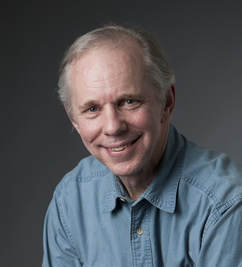 Dana Wilson was named the winner of the Newly Composed Category in 2016 for his work for solo flute and chamber ensemble (ob, 3 cl, bcl, bsn, hn, tpt, tb, pf, perc, db), entitled The Conjurer. This lovely flute concerto in two movements was inspired by the world’s shamanic traditions. Commissioned by a consortium of flutists and wind ensembles, The Conjurer received its first performance in April 2015 by Gabe Southard. The Conjurer is included on a disc of his flute music entitled “The Conjurer: Chamber Music for Flute by Dana Wilson” featuring his colleague at Ithaca College, Wendy Herbener Mehne. She will perform The Conjurer at the 2017 NFA Convention on the New Flute Solos Concert at 1:00 PM on Saturday August 12, 2017. Another of Dana’s works will also be performed; FNMC member Christine Erlander Beard will present the NFA Premiere of Whispers from Another Time for piccolo and piano on the Piccolo Recital II (10:00 Sunday, August 13, 2017). We’re hoping to catch up with Dana at the convention and feature him in a Facebook live interview talking about The Conjurer and Whispers from Another Time, but in the meantime, we wanted to ensure that he was featured! Q&A with Dana… What about new music for the flute appeals to you? The flute has so many colors and textures, and is able to move from one to another in such a seemingly effortless way, thus providing depth and drama to a given passage or gesture. Describe your musical background and current activities. I’ve been composing a long time but only came to the flute in recent years in terms of commissions and lots of performances. (I’m so grateful to all the flutists in the world who are eager to explore new works!) I started my musical life as a jazz pianist and so a good deal of that aesthetic and its musical elements creep into my music. Maybe as a result of that, I’m drawn to the range of color and articulation that the flute provides. What advice can you give to flutists about approaching new music in practice? Think of all the sounds in the world—from birdcalls to violent storms—and how the flute can explore each so effectively, often jumping dramatically from one to another. Be open to the incredible fluidity that the flute allows music and musical drama to project. More About Dana… The works of Dana Wilson have been commissioned and performed by such diverse ensembles as the Chicago Chamber Musicians, Formosa String Quartet, Xaimen Symphony, Buffalo Philharmonic, Dallas Wind Symphony, Voices of Change, Netherlands Wind Ensemble and Tokyo Kosei Wind Orchestra. He has received grants from, among others, the National Endowment for the Arts, New York Foundation for the Arts, New England Foundation for the Arts, New York State Council for the Arts, Arts Midwest, and Meet the Composer. His compositions have been performed throughout the United States, Europe, East Asia and Australia, and appear on over 30 record labels. Dana Wilson holds a doctorate from the Eastman School of Music and is Charles A. Dana Professor Emeritus at the Ithaca College School of Music. He has written about his compositional process in A Composer’s Insight and Composers on Composing for Band, and is co-author of Contemporary Choral Arranging, published by Simon and Schuster. www.danawilson.org If You Liked The Conjurer... Afterglow Instrumentation: flute, clarinet, violin, cello, piano, and percussion Date: 2011 All Our Yesterdays Instrumentation: flute, clarinet, horn, violin, cello, piano, and percussion Date: 1999 Duration: 25” Allusions Instrumentation: flute and piano Date: 2013 And longing to be… Instrumentation: flute and piano or harp Date: 2013 Breathing the Water Instrumentation: flute and guitar Date: 2010 Dancing with the Devil Instrumentation: flute, clarinet, violin, cello, piano Date: 1998 Duration: 10” Gold Mosaic Instrumentation: flute, oboe, and piano Date: 2015 Luminescence Instrumentation: alto flute and guitar Date: 1998 Duration: 4’ Mirrors Instrumentation: wind quintet Date:1994 Pu Em Remu Instrumentation: flute and percussion Date: 1997 Shallow Streams, Deep Rivers Instrumentation: flute, horn, and piano Date: 2007 Sing to me of the Night Instrumentation: flute, guitar, and cello Date: 1999 Whispers from Another Time Instrumentation: piccolo and piano Date: 2001 Get to Know...Oliver Caplan One of the things we love about the FNMC Composition Contest is that it provides us with an opportunity to learn about so much great new music of such diverse styles, all of which is beautiful in its own way. Often times people make certain assumptions about what “new” music sounds like. But new music is anything that is recently composed, there is no one new music style. Oliver Caplan is a composer who unabashedly embraces a Romantic style and composes some really beautiful music in the process. His work, My Elephant Cloud for flute, clarinet, violin, and cello, was named an honorable mention in 2014 FNMC Composition Contest. It can be heard on his first album Illuminations and on his Soundcloud page. Q&A with Oliver… What inspires you as a composer? In my music, the geographies of people, places and ideas intertwine to become tales of transformation. From nature to world affairs, my compositions have included works inspired by Jane Goodall, Frederick Law Olmsted, and the Chinese Folk Novel Journey to the West. My goal as a composer is to create an emotional journey for audience members and connect them to music’s incredible ability to touch something deeply human inside of us, a place that words do not always reach. Tell us a bit about your compositional process The two instruments in my composing studio are a piano and a piccolo. One of my composing secrets, is that when I am working on breathing and articulation for winds and brass, I play all the parts on my piccolo. So if I’m working on orchestration for a 75-piece symphony, you might find me testing the Tuba part three octaves up! When I was young, I learned to play the flute in 5th grade, and performed on piccolo with the Stuyvesant High School Symphonic Band and the Dartmouth College Marching Band. The flute remains near and dear to my heart; whenever I’m composing for flute, I feel like I’m writing for my kin. Do you have any upcoming events that you would like our friends and followers to know about? Recently, a nationwide consortium of 12 ensembles commissioned me to compose a companion piece for the instrumentation of Stravinsky’s beloved Octet (flute, clarinet, 2 bassoons, 2 trumpets, 2 trombones). Leave it to Stravinsky to think up such a quirky and bottom-heavy instrumentation! My composition Krummholz Variations is a set of variations inspired by the alpine world. I had fun finding my own voice with these sonorities, and have really enjoyed being part of a larger conversation with this work. I’m currently working on my next album You Are Not Alone, with performances by Juventas New Music Ensemble (Lidiya Yankovskaya, Artistic Director). You Are Not Alone will raise awareness about breast cancer, marriage equality and the environment through four deeply personal chamber works: Love Letters (flute, clarinet, string quartet), You Are Not Alone (piano trio), To the Sea (string quartet), and Connect All (soprano, horn, piano). You can listen to samples of my music on my website, www.olivercaplan.com. Also, NewMusicShelf is carrying sheet music from my catalog (there are a few works up right now, with more coming soon). If you like what you hear, don’t hesitate to drop a line. I’m always looking for new collaborators! More About Oliver…. With memorable melodies and colorful interplay, composer Oliver Caplan’s music expresses a deeply felt romanticism. Mr. Caplan’s music has been presented in over 120 public performances, including the Nebraska Chamber Players, North/South Consonance, Trio Veritas and Schola Cantorum of Boston. He has been commissioned by the Atlanta Chamber Players, Bronx Arts Ensemble, Bella Piano Trio, Columbia University Wind Ensemble, Brookline Symphony Orchestra, Juventas and El Sistema Somerville, among others. Accolades include a Special Citation for the American Prize in Orchestral Composition, Veridian Symphony Competition Wins, the Fifth House Ensemble Young Composer Competition Grand Prize, seven ASCAP Awards, and fellowships at VCCA and the Brush Creek Foundation for the Arts. Recordings of Mr. Caplan’s music include his 2012 debut album Illuminations, 2015 EP Moon Over Appalachia, and a track on the Sinfonietta of Riverdale’s 2016 album New World Serenade (Albany Records). Mr. Caplan (b. 1982) resides in Medford, Massachusetts. He was raised in the Bronx, New York, studied Music and Geography at Dartmouth College (B.A. 2004) and Composition at the Boston Conservatory (M.M. 2006). An avid hiker, Mr. Caplan finds inspiration through time outdoors. www.olivercaplan.com If you liked My Elephant Cloud… A Midsummer Night’s Dream flute, clarinet, violin, cello, piano 11’ 2010 Chasing Dreams for Later Light nonet 30’ 2014 Every Iridescent Chip of Ice SSAA w/flute, clarinet, violin, cello, piano 8’ 2009 Four flute, bassoon, guitar, vibraphone 4’ 2004 Is There a Word That Means Return? narrator, bass/baritone, pierrot 10’ 2010 Journey to the West orchestra w/ solo flute and solo Erhu (or solo violin) 16’ 2011 Krummholz Variations octet 13’00 2016 Laugh • Stay • Dance flute, clarinet, violin, cello 7’ 2006 Love Letters flute, clarinet, string quartet 15’ 2015 My Elephant Cloud flute, clarinet, violin, cello, piano 8’ 2011 Quintet flute, clarinet, violin, cello, piano 3’ 2004 Revelry vocal quartet, flute, violin 4’ 2003 Song on May Morning SATB w/ flute, clarinet, violin, cello, piano 5’ 2011 Get to Know...Charles Halka 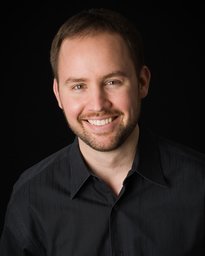 Charles Halka’s work for flute, clarinet, violin, cello, and piano, Por las Fuerza las Tierras, received a lot of recognition last year. It earned an Honorable Mention in the Chamber Music Category of the 2016 FNMC Composition Contest and was the winning piece in this year’s Tribeca New Music’s Young Composer Competition. We are excited that the first performance by an FNMC member will occur on Saturday April 29th when John Ross performs it in Tallahassee, Florida. We look forward to more performances in the near future. Q&A with Charles… What about new music for the flute appeals to you? The sheer amount of good and unique new music for flute is overwhelming, partly because of the flexibility of the instrument in terms of color, character, and virtuosity, but also because flutists are some of the most enthusiastic performers of new music. I think these are the reasons why composers keep writing such good music for flute - there's such a rich palette to explore and plenty of performers eager to accompany them into risky or uncharted territory. Every flutist I know is an adventurous and thoughtful performer, so it's the ideal collaborative experience when writing new music for flute. Describe your musical background and current activities. I came to composition a little later than many composers do nowadays, but I'm grateful for some pretty diverse musical experiences throughout school and into college (Peabody Conservatory), where I was a piano performance major before pursuing graduate degrees in composition (both at Peabody and at Rice University). Having been involved in classical music as well as jazz and popular music really helped develop my intuition as a composer and performer, but my interest (though certainly not expertise) in electronic music, graphic design, and other literary and visual art informs a good deal of my compositional plans and decisions. My current activities include teaching composition, orchestration, theory, and ear-training at the University of Nevada Las Vegas, where I also co-direct our new-music concert series, and I just finished (March 2017) a new work for dance that will be performed next month in Houston. Do you have any upcoming events that you would like our friends and followers to know about? I'm really excited about an upcoming performance in Boston of "Potato Face Blind Man," a piece for voice and mixed chamber ensemble (including flute) I was commissioned to write last year. Callithumpian Consort will perform it on April 20 at New England Conservatory (http://www.callithumpian.org/apr-20th-sicpp-2016-commission/). Also, the work that received Honorable Mention in FNMC's Competition, "Por la Fuerza las Tierras," was the winning piece in this year’s Tribeca New Music’s Young Composer Competition (http://www.tribecanewmusic.org/2014results/), and TNM will perform the piece NYC sometime this summer or fall. More About Charles… Charles Halka’s works have been performed in North America, Europe, and Hong Kong by the Cabrillo Festival Orchestra led by Marin Alsop, the Mexican National Symphony Orchestra, the Lviv Philharmonic, Mivos Quartet, Fort Worth Opera Studio, counter)induction, Volti, Callithumpian Consort, ÓNIX Ensamble (Mexico), PRO ARTE eNsemble (Russia), Aquarius (Belgium), and Jauna Muzika (Lithuania), among others. Performances have taken place at venues and events such as the Cabrillo Festival of Contemporary Music, The Kennedy Center, ISCM World Music Days, Foro Internacional de Música Nueva, the Coolidge Auditorium of the Library of Congress, and the Intimacy of Creativity partnership led by composer Bright Sheng. Halka is a recipient of the Copland House Residency Award, and over the last few years, was in residence with Houston’s critically acclaimed Musiqa (2014-15) and the Foundation for Modern Music (2011-14). Other residencies include those at the MacDowell Colony and the Sarbievijaus Cultural Center in Kražiai, Lithuania, where he wrote And Jill Came Tumbling After, a chamber opera (libretto by John Grimmett) for the Baltic Chamber Opera Theater that was selected for Fort Worth Opera’s 2015 Frontiers showcase. Imaginary Spaces, a dance and percussion project in collaboration with Frame Dance Productions, was awarded support from the Aaron Copland Fund for Music. Charles earned undergraduate and master’s degrees from The Peabody Conservatory and a doctorate from Rice University. He is Visiting Lecturer at the University of Nevada, Las Vegas, where he teaches composition, orchestration, and musicianship, and co-directs Nextet, UNLV’s contemporary music ensemble. More information at www.charleshalka.com Get to Know...Carleton Macy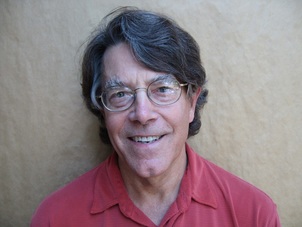 As you’re preparing for the new school year and choosing repertoire for your advanced student flute quartet (or your own!), we suggest checking out Carleton Macy’s wonderful work Intensity. An honorable mention in 2015, Intensity for four C flutes (amplified) is available for free download on his website! www.carletonmacy.com Q&A with Carleton… What about new music for the flute appeals to you? First, I am very drawn to the flute’s flexibility on so many levels: pitch range, textures, articulation, tone qualities, and extended techniques including some available only through amplification. Second, and perhaps most importantly, I am drawn to flute performers because they always tend to be very open to new music. Who is your favorite “new music” composer? When I am composing, my favorite composer is myself (of course!). Between compositions my favorite composers shift depending upon whose music has recently made the strongest impression upon me. The composers who come to mind now are Michael Gordon (and his recently completed work “Van Gogh”, Kevin Puts (especially his opera, “Silent Night”), and Silvestre Revueltas (a not so “new” composer) whose CD is in my car. My favorite new music pieces are always those that have found new ways to say the same old things. Describe your musical background and current activities: I grew up learning trumpet in public schools and then added trombone and switched to French horn because horn music was more interesting and more substantive when playing in an orchestra. I studied music ed, taught in Peace Corps (Ethiopia), and then went back to grad school to become a conductor and along the way I became a composer. I taught theory/comp and directed a jazz band at Macalester College for 35 years Along the way I learned to play Renaissance wind instruments, Baroque and contemporary recorder (mostly alto), swing and jazz drum set, and Chinese traditional instruments on which I performed with the Minnesota Chinese Music Ensemble. I am now retired from teaching but remain very active as a composer living in California, and once again loving performance on horn and bass drum (in a pipe band.) How do you view the composing profession? College faculty members are “required” to be professionally active which means actively seeking out juried performance and recording opportunities. Making real money composing would be wonderful, but the reality is that few composers can make more than a minimal honorarium and a small amount from ASCAP and BMI sampled performances. This may have bothered me at one time, but now I prefer to give my music away, which I do on my website: carletonmacy.com. On this site you may listen to and freely download pdfs of scores and parts for most of my music. A good performance of a new piece is the best pay! If a performer can get a grant to commission me, I’d be glad to share the wealth! What advice can you give to flutists about approaching new music. (1) expect to put in the same amount of time preparing a new piece that you would put into the preparation of a piece from the standard repertoire. Standard repertoire often gets more prep time because colleagues already know how it should be played, and thus performance expectations are higher. (2) Don’t hesitate to contact and consult with the composer. This is so easy to do now: send a recording of a run-through, even if recorded on one’s phone, or set up a skyped run-through. Most composers want to be involved with performance preparation. (3) Always commit to an expressive point of view in all of the music, new and old, that you perform….. and, of course, have fun while you are doing it! More about Carleton… I compose works ranging from vocal and orchestral to jazz and music for non-western instruments, often integrating a variety of historical and ethnic stylistic influences. My compositions have been performed throughout the United States, in Europe and Asia, and are recorded on INNOVA, Naxos, DAPHENO, and Latvian Radio. Macy’s Composition teachers have included William Bergsma, Robert Suderberg, and Donal Michalsky. I am a Professor Emeritus of Music at Macalester College where I began teaching in 1978. In addition to teaching theory and composition courses I directed the MacJazz big band, the Macalester Collegium Musicum, and the Mac New Music Ensemble which specialized in improvised music. I have an active interest in Non-Western music, having served as Artistic Director, conductor and sheng performer with the Minnesota Chinese Music Ensemble. I am presently an active composer living in Pacific Grove, California where I am also an active performer on French horn, alto recorder, and bass drum. If you enjoyed Intensity… A Little Fuguing Instrumentation: fl, ssax(cl), elec gtr, mar Duration: 5’ Year of Composition: 2006 Centering Instrumentation: double woodwind quintet and piano Duration: 20’ Year of Composition: 1984 Commentaries Instrumentation: fl, ob, cl, bn, hn Duration:14’30” Year of Composition: 1988 Concertino Instrumentation: fl, ob, cl, bn, hn, vib, mar Duration: 8’ Year of Composition: 1993 Douce Dame Instrumentation: Mez, fl, cl, pf, vn, va, vc Duration: 11’20” Year of Composition: 2012 Echoes Instrumentation: picc, 2fl, afl, 3cl, bcl Duration: 8’ Year of Composition: 2011 El Dia de los Muertos Instrumentation: fl, cl, pf Duration: 8’30 Year of Composition:2009 Equinox and Solstice Instrumentation: 2fl, pf Duration: 11’ Year of Composition: 1992 Flute Games Instrumentation: Mez, fl Duration: 12’30” Year of Composition: 1982 FMV Instrumentation: fl, va, man Year of Composition: 2006 Friends in Time Instrumentation: flute (amplified), elec gtr Duration: 8’15” Year of Composition: 1991 Mid-Summer Dreams Instrumentation: fl, cl, vn, va, vc Duration: 10” Year of Composition: 2006 Monogram: Alexander George Macy Instrumentation: solo flute Duration: 4’ Year of Composition: 1983 Opera Venti Instrumentation: fl, ob, cl, bn, hn Duration: 12’ Year of Composition: 1990 Shades of Green Instrumentation: fl, cl Duration: 4’10” Year of Composition: 2013 Three Flutes Quartets from Mozart Instrumentation: 3 fl, afl Duration: 9’45” Year of Composition: 1988 Toute Ensemble Instrumentation: 6fl (3rd dbl picc) Duration: 10’30” Year of Composition: 1978 Twigs: a Serenade for Woodwind Quintet Instrumentation: fl, ob, cl, bn, hn Duration: 13’ Year of Composition: 1980 Waves Instrumentation: fl, ob, bn, pf Duration: 10’30” Year of Composition: 1984 |
AuthorThe Flute New Music Consortium is an organization dedicated to the creation and support of new music for the flute. Archives
June 2019
Categories
All
|

 RSS Feed
RSS Feed
